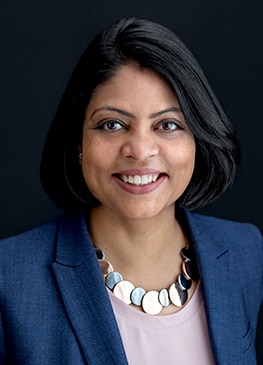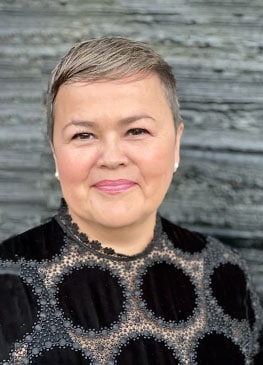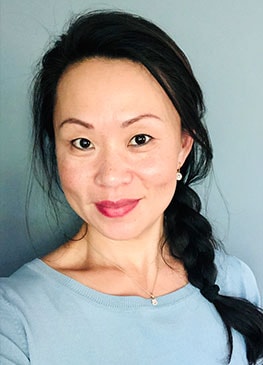Read the full interview here
-

Q. What were some early influences that really shaped who you are as a leader today?
A. I was the youngest of four children, and I grew up in a Japanese-American household, where the focus was on hard work, academics, and sports. My sister is seven years older than me, and she was one of my earliest role models. When I went to college, I followed in her footsteps in studying computer science, not realizing at that time that it was a nontraditional role for women. That started me on my career path to ultimately working in IT.
-

Q. What is the best mentoring advice someone has given you?
A. It took me a while to find my voice. I was very shy growing up, and I thought, like many people, that if I worked hard, I would get ahead. Thankfully, some key leaders and mentors really encouraged me to speak up and share my perspective, even if the topic wasn’t directly in my space. They pushed me outside my comfort zone to be more comfortable about sharing my opinions.
-

Q. Other key lessons you’ve learned in your career?
A. Another challenge I’ve faced is being able to deal with conflict more directly. Early in my career, I found almost any way to avoid it. When something happened, I would try to work it out behind the scenes rather than have it come to a head in a public forum.
But as I matured and moved into leadership roles, it was clear that you can’t avoid it. When you’re in a room of leaders, and they’re observing you, they really want to see you being comfortable having open debate in a way that is respectful and is going to drive outcomes faster.
-

Q. Was there a moment when you felt like you made the jump from manager to leader?
A. Early on, I was a very good manager because I was very diligent, and management is much more tangible. I was able to set goals and push to achieve them. It was easier to measure. About ten years into my career, as I was leading my first operating team in a major effort, it became clear that my focus had to be more on inspiring people and helping people come together as a team. It’s about the soft skills.
As leaders, we’re all evolving, and I’ve learned in the last few years that to motivate people and to be able to achieve something really complex and difficult requires clarity of expectations and a common objective. Then you empower people to reach that goal.
-

Q. What do you think is the hardest part of leadership?
A. For me, the hardest part is knowing that you can only do so much as a leader. In the end, the motivation is going to come from the individual, and you can’t control that. You can influence people and set a vision, but ultimately it’s whether folks choose to follow you, whether they believe in what you’re driving toward, and those are the intangibles that you cannot control. You really can only influence.
-

Q. Talk about the art of creating that common vision.
A. I’ve always been very analytical. And a challenge of being analytical is that sometimes you overthink things. So the challenge is to not make something more complicated than it needs to be. You have to break the problems down and then make progress toward the outcome. That’s a key skill everyone needs, given that we are all dealing with greater complexities in our environments.
-

Q. Other important leadership lessons you’ve learned?
A. I learned one lesson at a point when my career had stalled. I had moved up very quickly when I was younger. But over time, I became complacent. I got comfortable with my network, and then the environment shifted around me. The people who were once my sponsors and mentors retired or left the company, and I did not keep up my network.
That was a tough leadership lesson because it put me in a really precarious position. The lesson is that we really all need to maintain those networks. We need to have very effective working relationships up and down and across at multiple levels, and we all need sponsors.
The most rewarding leadership lesson I’ve learned is about the importance of paying it forward and to grow more leaders. That’s one of my passions, and I want to give back. I’ve had great role models in my career, and I hope I can be a role model for women that come behind me.







